 13249069
13249069
The russian-moldavian dictionary
FOREWORD
In the second half of the 19th century, in several stages, held the Union of two European countries dependent on Turkey: Moldova and Wallachia. In the year 1858, at the Paris Conference was set the following name for the new State formations: "United principalities of Moldova and Wallachia". Initiated mostly by young people, some of whom have been trained in France, this connection was made very quickly. We, the Moldovans, appreciate differently the surrender of statehood by the younger and active part of the Moldovans, the elite over the Prut. Is possible that the Union of the two related peoples has played a positive role in their political and economic development.
But the authors of the project www.moldovenii.md are convinced that the name of the State, supported the nation and tongue (Romania, Romanians, Romanian language) is wrong. This error is based on the belief of some of the most active "unifying" that Moldovans and Wallachian come from the Romanian settlers. From that connection has gone a long time, a very large number of artifacts, works of scholars in archaeology, history, Linguistics, genetics and genetic geography were founded and the new sources are contrary to the fact that the Moldovans are the descendants of Romanians, and even demonstrate the opposite. Many people understand that in case of objective research it might reach a different conclusion that Moldovans descend from Rome but Italians and other nationalities of the peninsula Apennine come from the direct ancestors of Moldovans - the Thracians and proto – Thracians.
From the Union of the middle of 19th century the entire Romanian science serves the wrong version of the origin of our people. Archeology, history, philology, linguistics and other sciences instead of making competitive scientific research, tend to interpret the new facts in the context of Romanism.
The facts and scientific data which serves to show the contrary, are destroyed or covert by the Romanian society (and Moldovan), also by and if this is impossible, the distributors of versions and theories "inconvenient" are derided, renegades. That whiles the truth - the main purpose of any scientific research - no matter, in most cases Romanian history and linguistics: all are subject of political orders based on historical mistake of the founders of the current Romanian state.
Some may say: "No matter the name of the people, the state language, it is important for people to live well and rich", but the problem is not only in science and economics. Nations, based on their history, well-studied and millenary roots, are more likely to survive, creating powerful states, to consolidate and to have a worthy contribution to the development of mankind. About this it says in p.44 of "Crezul Moldovenilor": "Romanian citizens of Romania, the time will come when most of you will realize the true origin and belonging to a people older than Rome. Rumanianism has played role in the history and strengthens the nation. At one stage some role was positive. For further development of ethnicity is necessary to regain the history truthful. Knowledge of history truthful name ethnically justified historically and culturally, it allows people keeping continuity and succession of its development, clarifies the peculiarities allows keeping symbols and ancient traditions, the memory of ancestors and true heroes of the nation. History genuine explains the sources of language, culture and customs of the ethnic group, form a strong foundation and relying on them, the nation can develop sustainably. The more deeply studied the roots of the nation and its history, the more is clearly understand the future ".
Trends to help Moldovans (Romanians) to know their roots are one of the main reasons that prompted the authors and sponsors to create the project www.moldovenii.md.
But we Moldovans have other good reasons to return to Moldova's history and rich vocabulary of Moldovan language. It happened that soon after the union and the transfer of the capital Bucharest, Moldova over the Prut more developed as Wallachia, entered the stage denationalization and as a result - the degradation. This phase has not ended. The attack "Romanians" was and occurs on all fronts, but specific language, which the Moldovans always called it "Moldovan" was attacked after the union of principalities.
The first thing that they did - the Cyrillic alphabet, which for millennia has been not only the Slavic alphabet, but the Thracians, the direct ancestor of Moldovans, who over centuries ensure good full and rich aural Moldovan language was replaced with Latin alphabet. Immediately it was a lack of letters. The Moldovan language exists sounds corresponding to the letters of the Cyrillic alphabet "ш" "щ", "ц", "э", "ы", "ь", "й". Latin alphabet does not have these letters therefore appeared joints letters designating a sound and letters with "tails", "birds" and "cottages" at the top and bottom - ș, ț, ă, â, î, i.
Old Moldovan words are laconic , render perfect sense , are essentially national , for the reasons already listed but are not taught in schools, are difficult to find in literature textbooks Romanian elite ( politicians , writers , journalists , etc.) principally uses. Instead it preferred are Wallachian and foreign words (usually French and English). We do everything to erase the memory of national Moldovans beautiful words, expressions used by our ancestors. There will be no Moldovan words and expressions of our ancestors - there will be no nation.
Why do many representatives of Moldovan intellectuals from the mid nineteenth renounced at their roots, accepting the wrong version of the origin of his people? It is obvious that some representatives of the nation, which has lagged behind neighboring nations in development of material civilization, suffering from inferiority complex , they tend to find common roots with these nations. Unfortunately, this trend is o own create by the intellectuals , educated abroad , broken roots people who do not know , not the top values and customs, traditions and culture of the people. In this case, Moldovan and Wallachian elite from the middle of the nineteenth century the nation embraced Roman origin, although this has not been demonstrated by anyone.
Of course, the Romanian language modern was made up of several generations of people cultivated people, familiar with several languages. In the second half of the century the nineteenth century these people have worked hard to the systematization of vocabulary Moldavian language and the vallachian, there appeared ideas and new terms, which before were missing from these languages, have been edited dictionaries. It was a necessary, because people language does not have enough words to express complex social connection and personal and economic, which has rapidly grown in the 19th and 20th centuries. The language had to grow and therefore the writers, historians and linguists made this, providing extensive language of the Moldovans and the Romanians today. With regret but as I said, this activity has been permanently obstructed by the spirit of political reform authors linguistic and the direct involvement of the politicians.
And today, in their rush to the politicians and of the representatives of the "intellectuals" of Moldova after "values foreign", looked that neither the West nor the East cannot be reached the latter in this way and that this turns us forever in all your (and aunts) from abroad.
The only way is to know your own origins of his histories, languages, crops, knowledge of the foundations; we have to go in our tendency toward a better life. Only on that basis may be created a present and future of quality.
Taking about this the huge influence of the culture of the Moldavian training on the current Romanian nation, we accept, with certain reservations, the idea of a common ethos in the space from Pannonia to Transnistria. We do not want to separate Moldavian language on the so-called Romanian. Certain of these considerations dictionary is called "Russian - Moldavian/Roman". We want to give to the citizens of the Republic of Moldova (and not only) the opportunity to remember the following words and expressions shall truly Moldavian and not to be confounded at when communicating with the persons in Romania, who speak a language in large part to the "dirty" with strange expressions, which the Moldovans may not always understand.
Our readers may be satisfied that often the Moldavian words play the desired meaning of better and more laconic, if they will take cognizance of the work of this compartment.
In the end, we want to draw attention to the visitors to the site www.moldovenii.md at the following:
• We do not want in any circumstances to separate the society (it is divided and without us), but we believe that in our country all those trained in the education of the generation in the growth as well as politicians in Moldova, which participate at the practical training of our state sovereign, must keep in mind: "Young Moldavian state, dimly from the point of view of the economic and political, has the chance of survival only in the case in which will develop their own identity, based on the name of the country, of the nation and language - Moldova, Moldavians, Moldavian Language", with full respect for the rights of national minorities and in the light of the development of bilingualism Moldavian-Russian. Time to write their own history, on the basis of which we must educate youth and to bear in mind the words of the classic literature of the century the XX century: 'The one who controls the past controls the future, and the one who controls the present controls the past". Today do we control our past and this is the cause of our troubles...
• To simplify the use of the dictionary, we removed from him the unnecessary meanings, from the point of view of the inventors of the words, which often are borrowed from foreign vocabulary or are not charged and therefore cannot be restored in the language spoken.
• I tried to accentuate the need for restitution in memory and in practice of the old Moldavian words. Possible, we have forgotten something. Possible, you will found the mistakes and inaccuracies. Please write us about these, we will bring attention at the necessarily proposals and your objections. Anyway, you will receive an answer.
The project team www.moldovenii.md
În contextul lansării programului ”Satul European”, ce probleme vitale există în localitatea dumneavoastră?
- Statut:
- Sat
- Prima atestare:
- 1606
- Populația:
- 1538 locuitori
Brînzeni este un sat şi comună din raionul Edineţ. Brînzeni este unicul sat din comuna cu acelaşi nume. Localitatea este situată la o distanţă de 18 km de Edineţ şi la 219 km de Chișinău. Conform datelor recensămîntului din anul 2004, populaţia satului constituie 1538 de oameni. Prima atestare documentară a satului Brînzeni din ținutul Hotin datează din anul 1606.





 15 noiembrie - Calendarul celor mai importante evenimente din trecut și prezent
15 noiembrie - Calendarul celor mai importante evenimente din trecut și prezent 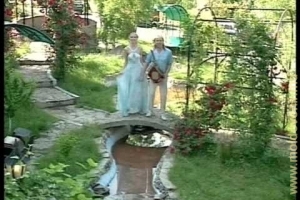 MELODIA ZILEI: Anatol şi Irina Bivol - Ileana și Constantin
MELODIA ZILEI: Anatol şi Irina Bivol - Ileana și Constantin 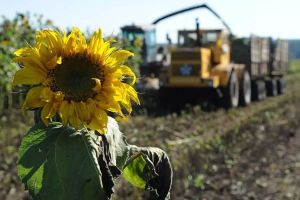 Loviți de secetă! Fermierii au obținut o recoltă mai mică de floarea-soarelui
Loviți de secetă! Fermierii au obținut o recoltă mai mică de floarea-soarelui  Moldografia: Clădirea conacului moșiei Vila Mîndîc
Moldografia: Clădirea conacului moșiei Vila Mîndîc 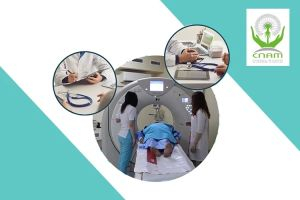 Persoanele cu maladii oncologice beneficiază mai rapid de investigații de înaltă…
Persoanele cu maladii oncologice beneficiază mai rapid de investigații de înaltă… 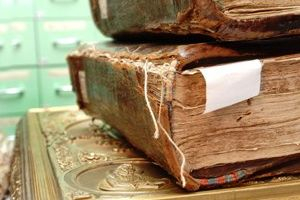 Adunarea ţării în Moldova la 582 de ani
Adunarea ţării în Moldova la 582 de ani 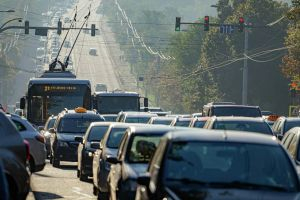 În municipiul Chișinău va fi inaugurat Centrul de Monitorizare a Traficului
În municipiul Chișinău va fi inaugurat Centrul de Monitorizare a Traficului 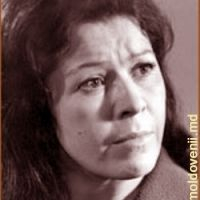 Marica Balan – o legendă a scenei
Marica Balan – o legendă a scenei 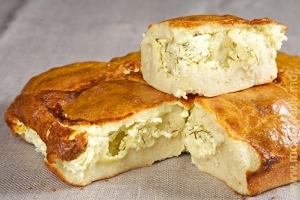 REŢETA ZILEI: Cumaci - pîine cu umplutură de brînză
REŢETA ZILEI: Cumaci - pîine cu umplutură de brînză  Dimitri Ciubașenko: „Maia Sandu încearcă să oprească căderea sa ulterioară”
Dimitri Ciubașenko: „Maia Sandu încearcă să oprească căderea sa ulterioară” 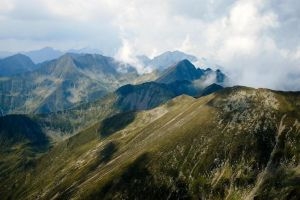 Moldovenii – temelia ţării
Moldovenii – temelia ţării 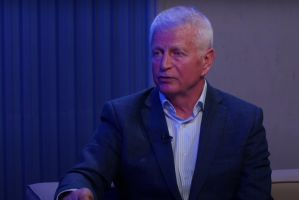 Vladimir Panfilov: „În 1992 nu a existat suficientă înțelepciune pentru a negoci…
Vladimir Panfilov: „În 1992 nu a existat suficientă înțelepciune pentru a negoci… 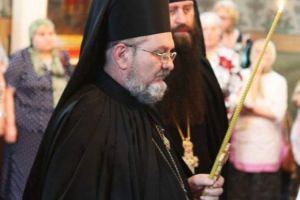 71 de ani de la nașterea protoiereului mitrofor, Mihail Panas
71 de ani de la nașterea protoiereului mitrofor, Mihail Panas  Rîul Ciuhur de la izvor pînă la vărsare (Slideshow)
Rîul Ciuhur de la izvor pînă la vărsare (Slideshow)  16 noiembrie - Calendarul celor mai importante evenimente din trecut și prezent
16 noiembrie - Calendarul celor mai importante evenimente din trecut și prezent  Ce evenimente culturale vor avea loc în ziua de 16 noiembrie
Ce evenimente culturale vor avea loc în ziua de 16 noiembrie  Moldografia: Vedere spre satul Pociumbeni, Rîșcani
Moldografia: Vedere spre satul Pociumbeni, Rîșcani  Victoria moldovenilor la Cătlăbuga
Victoria moldovenilor la Cătlăbuga 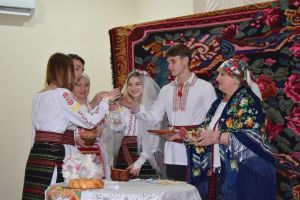 Liceul „Ștefan cel Mare” și muzeul Drochia, împreună pentru a păstra tradițiile…
Liceul „Ștefan cel Mare” și muzeul Drochia, împreună pentru a păstra tradițiile…  Cum pot fi utilizate frunzele uscate
Cum pot fi utilizate frunzele uscate 
